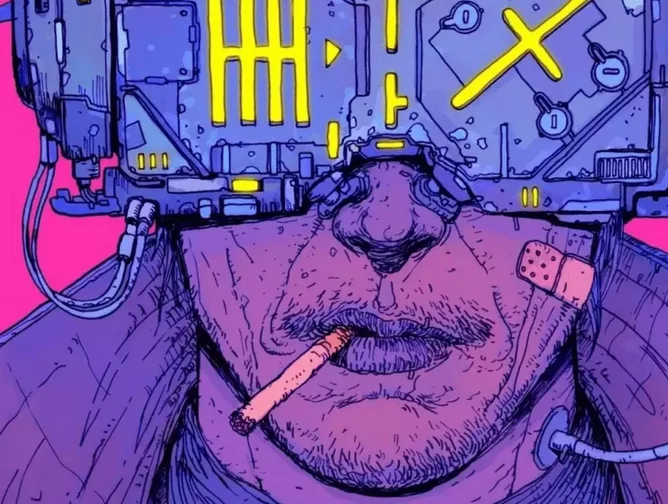Wake up and smell the Metaverse! It’s the Cyberpunk 2020’s

A central theme of cyberpunk fiction is the blending of “reality” with hyper-immersive digital space.
This new decade is already blurring the lines between sci-fi and reality, as AR/VR, social media, smartphones, and the IoT push us ever deeper into new virtual worlds, shared digital spaces - a metaverse pushed by tech companies to augment, or even replace, our physical lives.
We're going to be doing a much deeper dive into the emerging metaverse trend, and speaking to some of the people involved in making these digital spaces a reality in our next issue of Mobile Magazine. For now, however, let's look at the history of the metaverse, as well as its present form, and what the future might hold.

1992: Snow Crash and the Origin of the Metaverse
The term “metaverse” is coined in Neal Stephenson’s science fiction novel Snow Crash. Later popularised further by the book Ready Player One, a metaverse is a fully-realised digital space existing beyond the physical space in which we live - sometimes upheld as a utopia of infinite possibility, but more frequently used to paint a picture of a society in denial of a dying or injust physical world.
2003: Second Life - the First Metaverse?
Created by San Francisco-based developer Linden Lab, Second Life was (and still is, I guess) an online virtual world where people could work, play, and interact socially through an online avatar. The game boasted over a million active users at its peak and is often held up as both a precursor to social media, and the world’s first metaverse.

2010-2019: The Dawn of the Gaming Metaverse
During the last decade, the gaming community became the most active testbed for metaverse features, as developers looked for new ways to keep users inside their virtual worlds. From MMORPGs like World of Warcraft to more modern iterations like Fortnite have amassed tens of millions of regular users having shared social and recreational experiences online. In April of 2021, Epic Games - the studio which makes Fortnite, Smite, and owns the Unreal Engine - announced a $1bn funding round explicitly to raise capital to invest in "the future of the metaverse." The company holds regular events within digital space - a uniquely "metaverse" occurence - like a recent virtual concert by Ariana Grande that took kicked off a series of shows within the game Fortnite as part of an ongoing storytelling and gameplay event called Rift.
“The metaverse is not an App Store with a catalog of titles. In the metaverse, you and your friends and your appearance and cosmetics can go from place to place and have different experiences while remaining connected to each other socially” - Tim Sweeney, CEO, Epic Games
2021: The Metaverse Alliance
In May, 17 South Korean companies banded together to form the “Metaverse Alliance”, an industry association dedicated to growing and elevating metaverse technology like VR, AR, and shared spaces. In July, SK Telecom launches its own metaverse, ifland, in an attempt to create “a new kind of social networking service culture”. Now, the Metaverse Alliance has more than 200 members, including government bodies and companies from throughout Korea's tech, defense, finance, and entertainment sectors.

2022-???: The Age of the Metaverse
From Korean telecom companies and crypto enthusiasts to social media giant Facebook, the world of tech is being increasingly vocal about the direction in which we’re headed. From the multi-dimensional gaming spaces created by Roblox, to large scale enterprises looking to recreate the sense of a shared office in digital space, the 2020s are on track to be the decade we all step into the metaverse.






